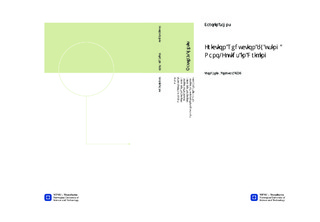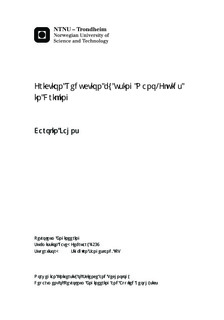| dc.description.abstract | The increasing requirements of drilling fluids in long extended reach wells desires for new solutions to solve torque and drag problems in the wellbore. Nanotechnology is an upcoming technology development, which is already used in other industries to minimize friction coefficients of lubrication fluids in hydraulic hoses. Drilling fluids act also as a lubrication fluid in the wellbore, besides of many other functions it has to fulfill. It is well known that oil based muds (OBM) are characterized with a better lubrication efficiency than water based muds (WBM). Out of this reason, research interest increases about successfully implementing nanoparticles to drilling fluids, especially to WBM, for reducing the generated mechanical friction between drill string and casing. Within this framework of thesis, tribological and rheological experiments were performed to investigate whether friction reduction can be achieved with alumina, titania or silica nanoparticles. Different particle concentrations in the fluid were tested to see, if lubrication efficiency can be defined to a specific particle concentration. Additionally, the nanoparticle added fluids were tested under different temperature condition to determine the influence on temperature towards nanoparticles. The experimental phase of the thesis was performed with a pin-on-disk apparatus and a modular compact rheometer (MCR), which allowed tribology and viscosity measurements. The tribology experiments test the metal to metal friction factor, which depend on the lubrication effect of the fluid. The rheology apparatus measures the viscosity of the fluid under different temperatures according to the standardized Fann viscometer.Whereas the pin-on-disk apparatus has an internationalized procedure manual and the test results are assumed to be reliable.As major result, there is a coupling effect between temperature and nanoparticles in the fluids. With the results of the pin-on-disk apparatus, the titania and silica nanoparticles effectively reduced the friction factor. The alumina particles have a limited friction reduction, in consequence of an increasing friction factor with increasing particle concentration in the fluid. | nb_NO |

